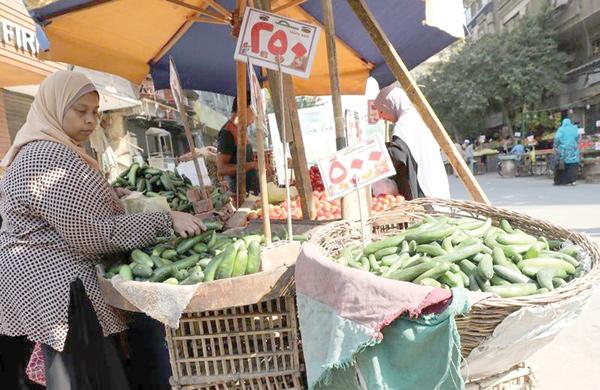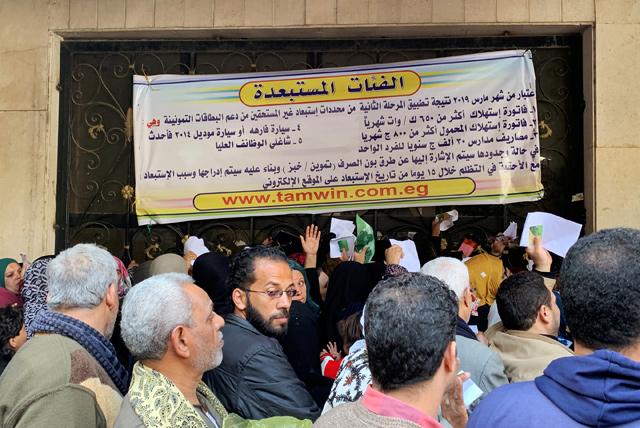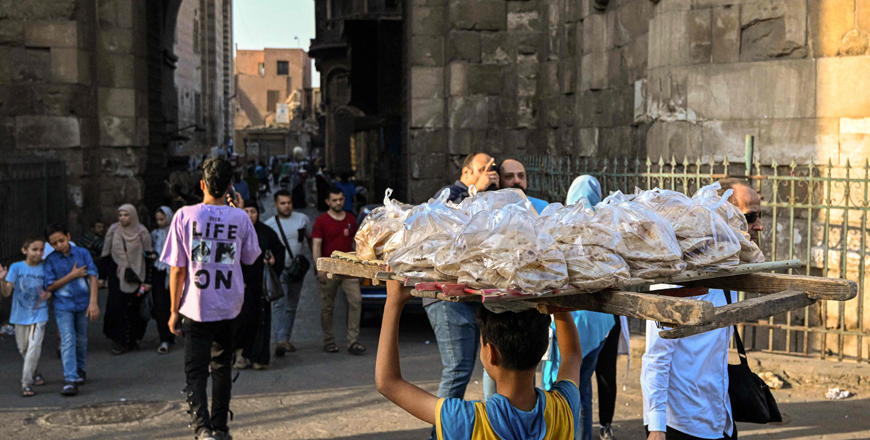AL SAFF, Egypt — When Egypt announced plans for a minimum wage late last year, the government hoped to lift living standards and calm street turmoil that has helped topple two presidents in three years.
Although one in four Egyptians lives below a poverty line of $1.65 a day, many workers say the 1,200 Egyptian pound ($170) minimum wage introduced in January is too little too late in a nation whose rulers have long favoured the elite over the poor.
“Some people spend half that on their pet dogs every day,” said Ibrahim Hussein, who earns 800 pounds a month as a private security guard, barely enough to support his three children.
Flush with more than $12 billion in aid from Gulf Arab states, the army-backed government is using some of the cash to defuse unsatisfied demands for reform and social justice.
Many Egyptians backed the army’s overthrow of President Mohamed Morsi in July and the ensuing crackdown on his Muslim Brotherhood in which about 1,000 of his supporters were killed.
And many are mesmerised by Field Marshal Abdel Fatah Al Sisi, the army chief who ousted Egypt’s first freely elected leader after mass protests against his rule. Sisi is soon expected to announce he will run for president — and win.
But once the euphoria fades, Sisi in his turn could face what some have dubbed the revolution of the hungry unless eradicating poverty and social ills becomes a higher priority.
“Setting the minimum wage is a first step in the path to social justice... The government must not forget or stop at the minimum wage only,” said campaigner Ashraf Al Taalabi.
“If the people do not feel they have social justice there will be a third revolution to achieve that goal,” he added.
Corruption, cronyism and stark inequalities in wealth fuelled the 2011 revolt that overthrew autocratic president Hosni Mubarak, when labour unions joined vast crowds demanding “bread, freedom and justice” for the nation of 85 million.
Cauldron of discontent
Three years later, impoverished cities like Al Saff, 60 kilometres south of Cairo, still await signs of a fairer deal.
Many queue for hours each day to buy state-subsidised bread in slums disfigured by garbage and raw sewage, while the rich and powerful inhabit luxury villas in gated communities.
“The minimum salary should be 3,000 pounds,” said Sayed Hussein, a physics teacher who sells rice and noodles at night to supplement his income. “If it doesn’t get resolved, we will all take to the streets. If this continues I will suffocate.”
The minimum wage applies to 4.9 million public employees and will cost the state an extra 18 billion pounds a year, swelling a budget deficit set to hit around £200 billion this year.
But the government has presented no long-term plans to boost revenue to correct the fiscal imbalance, analysts say, instead pinning its hopes on two stimulus packages of $4.3 billion each.
These rely indirectly on Gulf aid, so if Saudi Arabia, the United Arab Emirates and Kuwait become less generous, that could force spending cuts, risking a backlash in the streets.
Egyptians depend on food and energy subsidies which account for a quarter of all state spending. Successive governments have hesitated to cut the subsidies for fear of public anger, mindful of the 1977 bread riots that challenged president Anwar Sadat. Bread shortages also provoked unrest under Mubarak in 2008.
As well as subsidies and the minimum wage rise, budget strains include a new constitutional obligation to allocate some 6 per cent of spending on education, health and research.
Longing for change
According to Moheb Malik, an economist at Prime Securities, the government would struggle to meet its financing needs.
“There will have to be a cut somewhere and they can’t cut wages,” he said. “That leaves the subsidies, which are huge.”
The government hopes the wage rise will appeal to people like Ali Abdul Megid, 33, who works 16 hours — school bureaucrat by day, truck driver by night — without escaping poverty.
Like others he wants the government to tackle entrenched social inequality, not just throw some money at problems.
“I long for change, reform and for everyone to take their rights in this country so that the son of a minister is equal to the son of a doorman,” he said, sitting on a stool near a dirt road, tearful as he recalled how he started working at age 12.
Egypt has no easy options. Political upheaval has scared off tourists and investors, helping push foreign reserves to a low of $15 billion last year, barely three months’ import cover.
The government’s expansionary policies may fuel inflation, which hit 11.9 per cent in December and could cancel out any benefits from the higher minimum wage, adding to frustrations.
“Don’t give me a salary rise with your right hand, then raise prices on me with your left,” said another school administrator, Ahmed Al Deek, who began moonlighting three years ago to support his family.
When he lost a finger sawing in a carpenter’s shop, he vowed to stop working there. But tough times have forced him to go back.
“This exhausts us,” he said. “We have to be able to live on our salaries. We want to live decently.”
Mohammed Hosni started work as a bricklayer aged 14. Now he also drives a tuk-tuk, a three-wheeler cab, to feed his extended family, but buying an apartment remains a distant dream.
“People know the country is going through a tough time and the economy is weak,” he said. “But if we don’t see change the people will rise up again.”




















